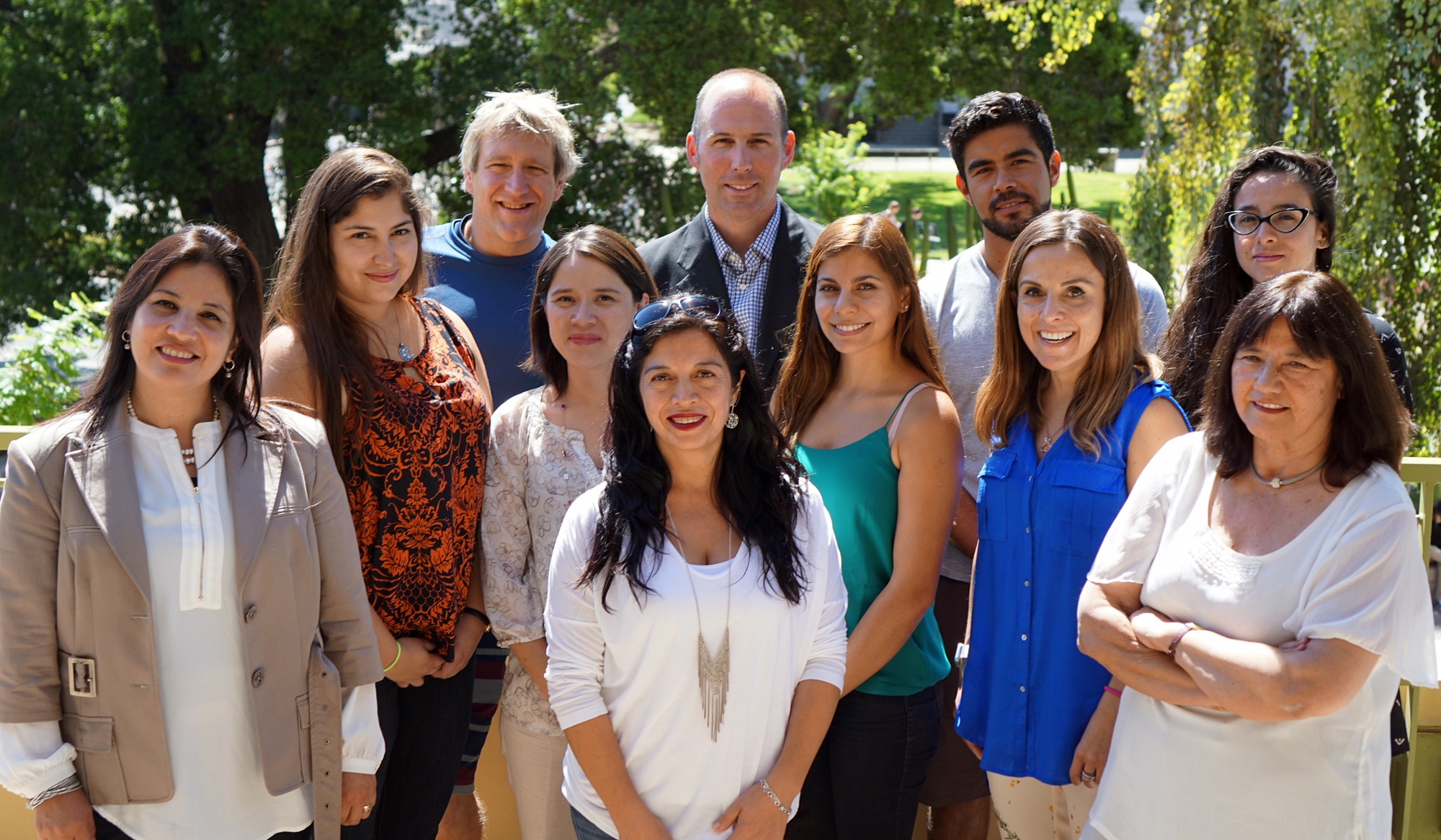
During the week of April 4th, the department hosted a delegation of Chilean professors and students who visited UC Davis to explore opportunities for collaboration and exchange. The ties between UC Davis and Chile run deep, having started over 50 years ago. This connection is set to further grow with the establishment of new research enterprises developing in Chile.
Four members of the visiting delegation presented talks at a symposium and poster session on Wednesday April 6th and the fifth presented a talk at our annual R. Bryan Miller Symposium the following day. Although the central theme was chemistry, our visitors represented a broad swath of disciplines, including food science and soil science, as well as computational and analytical chemistry.
The department extends our gratitude to Pontificia Universidad Católica de Chile and to our visitors, Professors Mónica Antilén, Verónica Arancibia, Angélica Fierro, Ady Giordano and Bárbara Herrera and graduate students Rocio Durán, Daniela Guzmán, Yersica Rios and Patricio Sánchez.
The UC Davis-Chile Connection: A Historical Overview
By Richard Darsie
Chile and California enjoy cultural and economic ties that are more than 150 years old. During the Gold Rush, boats traveling around Cape Horn to California stopped at Valparaiso, Chile's largest port, to seek provisions. Many Chileans joined the boats there as crew or passengers seeking their fortunes. On arrival in California, many Chileans stayed permanently. Indeed, when San Francisco had 35,000 inhabitants, 9,000 were Chilean.
The UC Davis-Chile connection began about 50 years ago when President Kennedy's Alliance for Progress and the Ford Foundation's 10 year Convenio, or Agreement, between U Chile and the University of California supported graduate education on UC campuses for many Chilean students and extensive research and educational exchange visits by UC faculty to Chile.
That agreement provided for training a large cohort of Chilean graduate students, mainly in the agricultural sciences. On return to Chile, those graduates played major roles in stimulating and facilitating the agricultural sector's modernization. Their work focused mainly on development of the temperate fruit sector, but their influence was ultimately felt in numerous other sectors, e.g., wine, berries, forestry, and aquaculture. Though trained as scientists, relatively few of these students played major roles in long term research.
Known as the "Davis Boys," these students were absorbed in numerous developmental efforts to promote and facilitate fruit production, processing and export. They were "absorbed" by the private sector and are widely credited with helping to transform Chile into one of the world's leading fresh-fruit exporters.
Nearly 20 years after the fruit boom began to slow, with the original Davis Boys nearing the end of their careers, Chile established several initiatives to promote renewed Chile-California interactions.
In 2008, the government initiated the New Chile California Convenio and the Becas Chile scholarship program. Immediately, UC Davis responded in efforts to recruit Chilean students and enrollment grew rapidly to about 50 Chilean students annually. Then President Michelle Bachelet visited California to sign a new Chile-California agreement in fall 2008.
Michelle Bachelet, president of Chile, Linda P.B. Katehi, chancellor of UC Davis, and U.S. Ambassador Michael A. Hammer on April 21, 2015 opened the UC Davis-Chile Life Sciences Innovation Center in Santiago, Chile. With a projected budget of $12 million over its first three years, the center will foster collaborative work among experts from UC Davis and Chile aimed at transforming public-sector research into regional, national and global business opportunities.
The center is funded through a grant from the Corporación de Fomento de la Producción de Chile, or CORFO, the country's economic development agency, and industry and university partner cost-sharing. Research would take place at UC Davis and partner institutions. The new center would work with participating universities, research institutions and industry to identify opportunities and set priorities for research and development activities that address industry needs. Working with its local partner will allow the UC Davis center to provide short and long-term solutions to industry and facilitate innovation.
